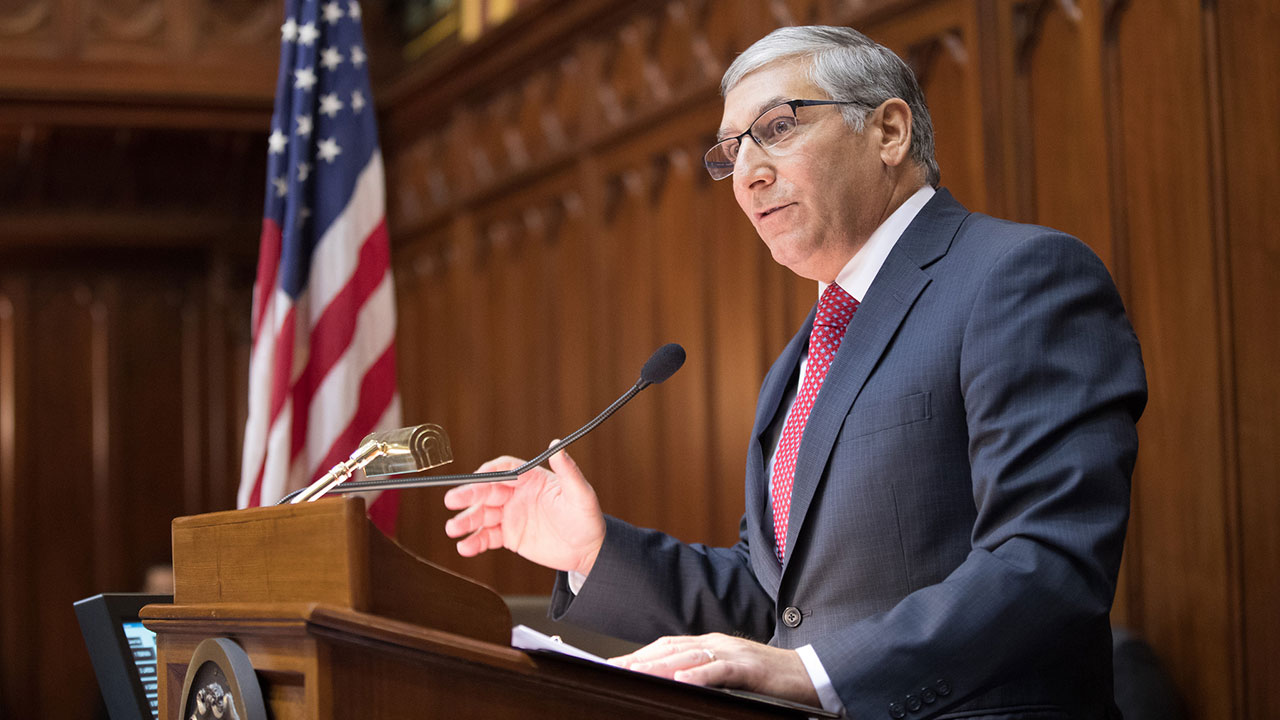Senate Republican President Pro Tempore Len Fasano (R-North Haven) and State Senator L. Scott Frantz (R-Greenwich) Co-Chair of the Commerce Committee, applauded today’s Senate passage of a bill to encourage urban development and workforce training by establishing a new brownfield redevelopment program.
Senate Bill 623 An Act Establishing the 7/7 Program to Encourage the Redevelopment of Brownfields and Underutilized Property aims to remove barriers to brownfield redevelopment to incentivize new business expansion and job growth in urban areas by providing tax relief over 7 year periods. The program would also require participating businesses to partner with local schools to establish workforce training programs.
“This new program would simplify the administrative process and offer tax relief to employers who invest in new development on brownfield property and make a commitment to work with local schools to train the next generation of employees,” said Sen. Frantz. “These incentives aim to encourage local development and help local schools train our state’s future workforce.”
“One of the most important ways we can help our cities is by encouraging businesses to grow jobs and invest in a workforce to fill those new positions,” said Sen. Fasano. “In order to thrive, a city needs a vibrant economy with a healthy job market and an eager well trained workforce. The 7/7 Brownfield Redevelopment Program seeks to address these needs by providing tax relief to encourage brownfield remediation and combining a business incentive program with a requirement to invest in education and job training in local high schools and community colleges. With this program, we can increase urban development and simultaneously create a pipeline to jobs in the community.”
Property owners remediating or redeveloping contaminated, abandoned or underutilized property could apply to participate in the tax incentive program through the Department of Economic and Community Development. The program also requires participants to commit to train and hire local students by partnering with local schools and community colleges to develop curriculum. Participating property owners would receive 100 percent exemption from the state income, sales and use, or corporation business taxes generated at the revitalized property for 7 years. Municipal real estate taxes would remain unchanged for the first 7 years. For contaminated property, the employer would also be able to deduct 60 percent of the remediation cost over the 7 years following the 7 year 100 percent tax exemption.
“This program will provide participating businesses with a local workforce of employees trained specifically for that job while also creating direct employment opportunities for Connecticut youth. By encouraging students to start thinking about career paths as early as possible, we can help show students their potential to find success in Connecticut. I thank the Senate for supporting this bipartisan effort to form unique partnerships between businesses and schools to bring new opportunities to our cities, to our workforce, and to future generations,” said Sen. Fasano.
The bill now moves to the House of Representatives.
